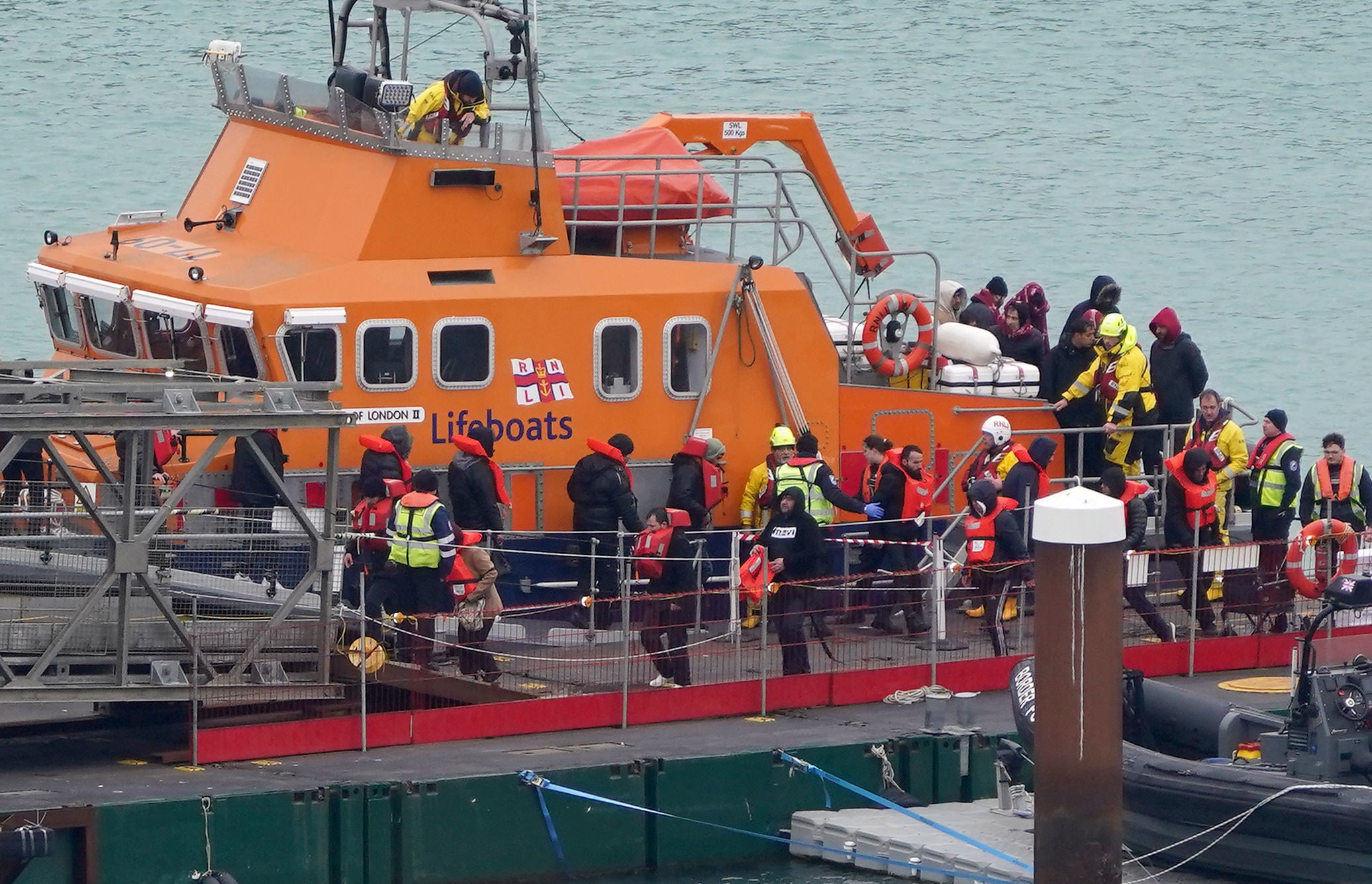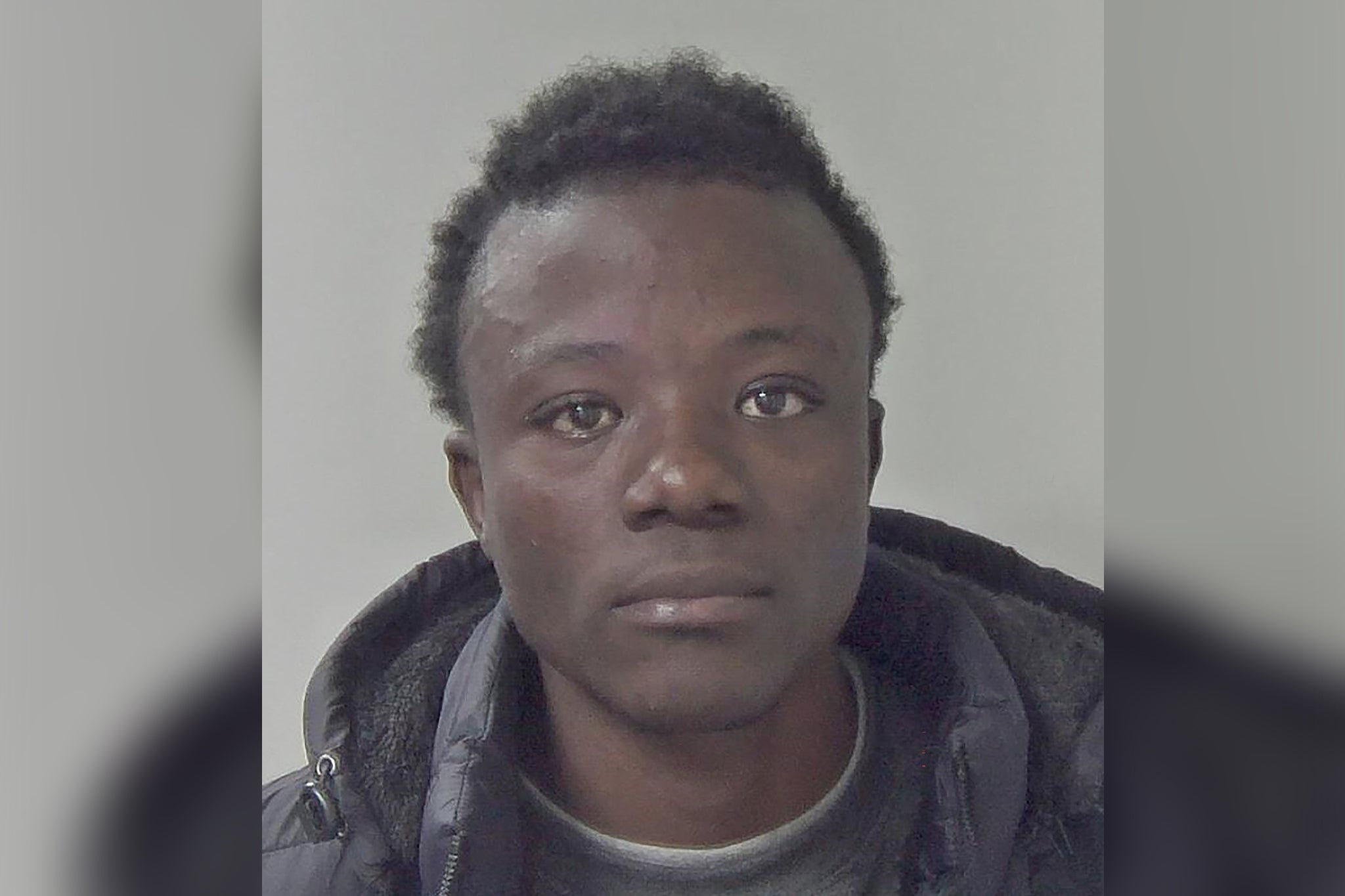Hundreds of small boat migrants charged with illegal entry to UK after new powers come into force
Teenagers among those convicted and sent to adult prison, charities say
Hundreds of small boat migrants have been charged with arriving illegally in the UK, or arranging the arrival of others, in the year after new powers came into force.
New analysis from the University of Oxford and a coalition of charities shows that in the year following the expansion of the government’s new laws on restricting channel crossings, the Nationality and Borders Act, some 240 small boat migrants were charged with illegal arrival to the UK.
Of those, 165 were convicted, data from June 2022 to June 2023 showed. The prosecutions have largely gone unreported, but last week asylum seeker Ibrahima Bah was convicted of manslaughter after he piloted an “unseaworthy” dinghy across the Channel.
The boat got into trouble on 14 December 2022, resulting in the deaths of four fellow migrants. Bah had told the court that he tried to back out of piloting the boat but smugglers had threatened to kill him if he did not.
In June 2022, the Nationality and Borders Act expanded to introduce the offence of illegal arrival to the UK, punishable by up to four years in prison.
A more serious offence of facilitating arrival was also added, with the maximum penalty of life imprisonment.

According to the new research, in the year to June 2023, 49 people were charged with facilitating the arrival of others for their role in steering dinghies into UK waters, and seven were convicted.
One person in every 10 dinghies was arrested for their alleged role in driving the boat in 2022. By 2023, this was up to one in seven.
Some 15 young people were wrongly treated as adults and charged with these new offences, with 14 spending time in an adult prison, according to refugee charity Humans for Rights Network.
At least five of these young people, whose ages are disputed, have subsequently been confirmed to be children after they were housed by the local authority.
In one case at Folkestone Magistrates in February 2023, an accused migrant said he was 16, not 25 as the Home Office had assessed him. His lawyer did not make representations about his age and the magistrates didn’t ask why the Home Office had assessed him to be 25, the report said. The migrant was then sent to an adult prison.
Judges have resorted to noting the physical features of other age-disputed migrants, such as their “voice broken”, “moustache”, “strong jaw” or “broad shoulders and evidence of shaving”, as justification for treating someone as an adult.

One Syrian refugee, Zain, interviewed by researchers described seeing teenagers in prison at HMP Elmley, Kent. He said: “The teenagers, when they came to the prison, straight away they stop eating their meals, they stop communicating. They moved [a young person] to the fourth floor with the high-risk prisoners.
“After one month, he started to become very skinny, nothing. He started to get mental health issues. He thought the guards were out to kill him, sent by people [in his country].”
Several of those sentenced for facilitating arrival had said they were survivors of torture or trafficking.
Samir, from Sudan, was sentenced to seven months in jail after being identified with his “hand on the tiller” of a Channel dinghy.
He said the experience had had a “massive effect on my mental health and my physical health”. He added: “It was my first time to be in a jail, to be in a locked place. Without knowing why you are inside the prison. You didn’t do anything, you are not guilty.”
Researchers found that Albanians, Sudanese and Egyptian nationals were proportionately overrepresented among those arrested for illegal entry, compared to the number of arrivals.
The most common reasons for piloting the dinghy were being under duress from smugglers in northern France, needing a discount on the crossing, or having previous experience steering boats, the report found.
The vast majority of those charged with an offence had ongoing asylum claims made just prior to their arrest – often from countries with grant rates of close to 100 per cent.
Latest government figures show that more than 2,000 migrants have arrived in the UK so far this year after crossing the Channel. Of those, 290 people made the journey in five boats on Sunday, the highest number making the crossing in a single day for more than a month.
For the analysis, researchers went to more than 100 court hearings at Folkestone Magistrates Court and Canterbury Crown Court. Data was also collected through freedom of information requests to the Home Office and the Ministry of Justice.
Victoria Taylor, researcher at the Centre for Criminology at the University of Oxford, said: “This report raises questions about the lawful treatment of victims of trafficking, torture, and children with ongoing age disputes.”
The report, No Such Thing As Justice Here, was published by the Centre for Criminology at the University of Oxford, in collaboration with Human for Rights Network, Captain Support UK and Refugee Legal Support.
A Home Office spokesperson: “The language used in this report is misleading. Most asylum seekers arriving in the UK by small boat are initially detained for 24 hours or less.
“Asylum seekers should seek protection in the first country where it is reasonable for them to do so and we continue to take robust action to crack down on criminal gangs and deter migrants from making these dangerous, illegal and unnecessary journeys across the Channel.”
Join our commenting forum
Join thought-provoking conversations, follow other Independent readers and see their replies
0Comments